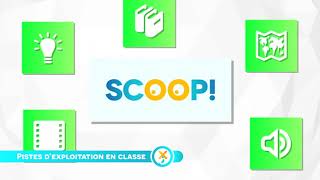Dans un monde de contenu et d’information, il est indispensable d’apprendre aux élèves à demeurer critiques face aux multiples messages médiatiques auxquels ils sont exposés. L’utilisation régulière de l’actualité pour appuyer divers scénarios d’apprentissage s’impose comme une démarche cohérente vers le développement de compétences informationnelles, artistiques, technologiques et éthiques.
D’ailleurs, l’apport des médias peut être exploité dans toutes les disciplines. Richard (2016) estime que « dorénavant, de nouvelles compétences liées à l’éthique, aux habitudes comportementales sur les réseaux sociaux, à la recherche et au traitement de l’information et à l’utilisation d’outils numériques sont nécessaires », qu’il « devient impératif d’intégrer, dans les objectifs poursuivis par la littératie médiatique, une formation à l’esprit critique visant à outiller les élèves pour qu’ils puissent agir sur les réseaux numériques d’une manière responsable, prudente et éthique ».
Il indique enfin que « le rôle de l’enseignant, par l’entremise d’une démarche explicite de questionnements interactifs, apparaît ainsi central pour amener les élèves à faire preuve d’esprit critique face aux différents médias qu’ils utilisent. » Le développement de la pensée critique envers le numérique fait d’ailleurs partie du Cadre de référence de la compétence numérique du ministère de l’Éducation et de l’Enseignement supérieur.

Si vous êtes de cet avis également, nous vous invitons à découvrir notre collection de guides pédagogiques numériques SCOOP!. Chaque guide présente des suggestions d’activités exploitant des outils qui favorisent le développement des habiletés de recherche et de traitement de l’information ou qui sont axées sur le développement de la compréhension du monde par les élèves. L’abonnement comprend plus de 600 guides plaçant l’actualité au centre d’une démarche pédagogique variable et souple.
De plus, cette année, SCOOP! offrira des guides adaptés pour les enseignants du primaire : « Les enseignants du primaire trouvaient déjà leur compte dans notre vaste collection de guides, mais cette année, nous avons développé des outils pour qu’ils repèrent plus facilement le niveau d’enseignement visé, tant au primaire qu’au secondaire. », mentionne Maxime Laflamme, conseiller pédagogique et chargé de projets à l’École branchée.
Et ce n’est pas tout! L’équipe vous prépare d’autres belles nouveautés dont vous entendrez parler prochainement. D’ici là, vous pouvez télécharger notre sélection de guides gratuits en vous inscrivant ici.




 Recevez l'Info #DevProf et l'Hebdo pour ne rien manquer des nouveautés de l'École branchée!
Recevez l'Info #DevProf et l'Hebdo pour ne rien manquer des nouveautés de l'École branchée!




